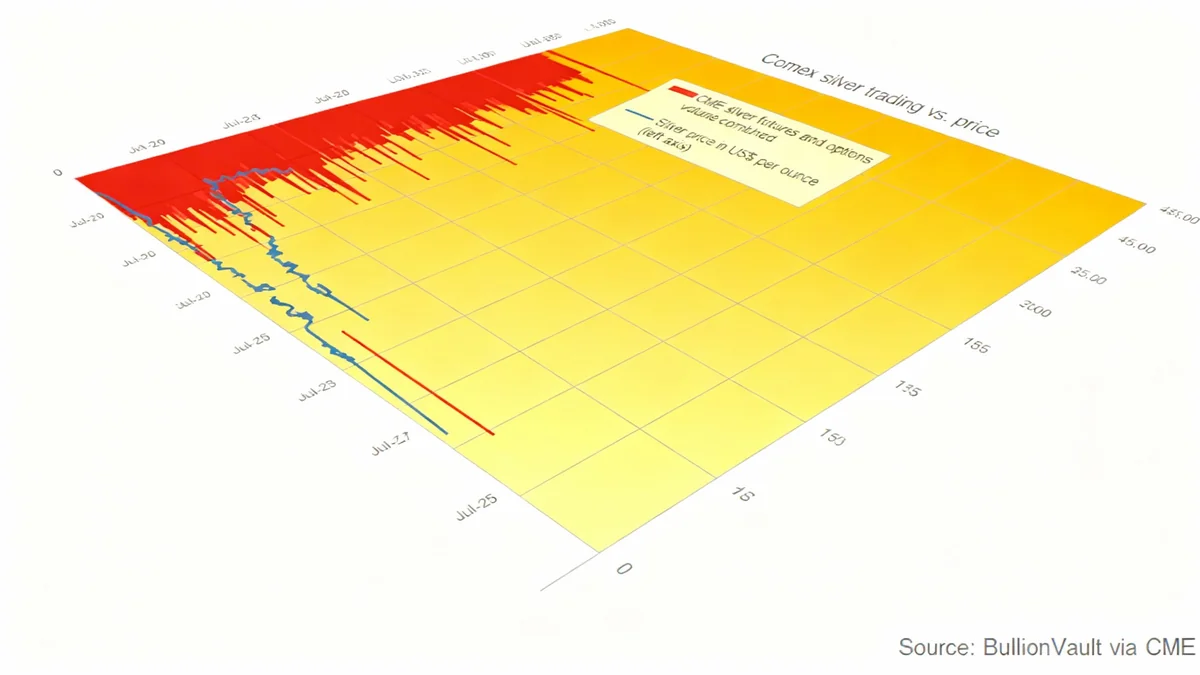In today's unpredictable economic climate, many investors are shifting their focus toward strategies that generate consistent income. Dividend stocks, known for their regular payouts, are gaining attention as a potential anchor for portfolios navigating market volatility. Companies with a strong history of returning value to shareholders can offer a degree of stability when growth is uncertain.
We've examined four distinct options that income-focused investors might consider, ranging from an energy giant and a unique real estate trust to a telecommunications leader and a diversified exchange-traded fund (ETF). Each presents a different profile of risk, reward, and potential for steady returns in a challenging market.
Key Takeaways
- Dividend stocks can provide a steady income stream, which is particularly valuable during periods of economic uncertainty.
- Companies like Chevron offer long histories of dividend growth, demonstrating resilience through various market cycles.
- Specialized REITs, such as Vici Properties, provide exposure to unique sectors like entertainment and gaming with high dividend yields.
- High-yield stocks like Verizon may offer significant income but come with considerations such as high debt levels.
- For broad diversification, dividend-focused ETFs like SCHD offer a single investment vehicle to access a basket of reliable dividend-paying companies.
Chevron: An Energy Titan with a Shareholder Focus
Chevron (CVX) stands as a pillar in the global energy sector. The company is not just a producer but an integrated giant, with operations spanning from oil and gas exploration (upstream) to transportation (midstream) and refining (downstream). This diversified model helps it navigate the inherent volatility of energy prices.
For income investors, Chevron's track record is a significant point of interest. The company has successfully increased its dividend payment to shareholders for 38 consecutive years, a testament to its financial discipline and long-term stability.
Chevron by the Numbers
- Dividend Yield: 4.5%
- Shareholder Yield (Dividends + Buybacks): 9.4%
- Forward P/E Ratio: 18.2 (above its 5-year average of 13.2)
The company's appeal extends to some of the world's most prominent investors, including Warren Buffett, whose firm recently held a 7% stake. Beyond its dividend, Chevron has been actively engaged in share buybacks, which reduce the number of outstanding shares and can increase the value of the remaining ones. When combined, these shareholder returns create a compelling total yield.
However, its current valuation suggests it is not trading at a discount. With a forward price-to-earnings ratio above its historical average, investors may need to adopt a long-term perspective to realize the best results.
Vici Properties: Betting on Entertainment Real Estate
Vici Properties (VICI) offers a unique entry point into the real estate market. As a Real Estate Investment Trust (REIT), it is legally required to distribute at least 90% of its taxable income to shareholders in the form of dividends. This structure makes REITs a popular choice for income seekers.
Vici specializes in a niche but powerful sector: casino and entertainment venues. Its portfolio is a who's who of the gaming world, including iconic properties operated by Caesars Entertainment and MGM Resorts across the United States and Canada.
Understanding REITs
REITs own and often operate income-producing real estate. They allow individuals to invest in large-scale property portfolios in the same way they invest in other industries – through the purchase of stock. Vici's focus on "experiential" properties like casinos provides a different kind of exposure compared to traditional office or retail REITs.
The company's business model is built on long-term stability. Its typical lease agreements span an impressive 40 years and include built-in rent escalators, providing a predictable and growing stream of revenue.
Its recent dividend yield was a substantial 5.8%. The dividend itself has also grown, rising from $1.00 per share in 2018 to a current level of $1.75. With a forward P/E ratio of 10.8, below its five-year average of 12.5, the stock appears to be trading at a more attractive valuation compared to some of its peers.
Verizon: High Yield in Telecommunications
For those prioritizing a high current yield, Verizon Communications (VZ) presents a noteworthy option. The telecommunications firm recently offered a dividend yield of 6.8%, one of the highest among large-cap U.S. companies.
Verizon is a cornerstone of the U.S. telecom industry, a sector known for generating massive and consistent cash flow. This financial strength is what underpins its ability to pay such a significant dividend to its shareholders.
However, investors should also consider the challenges. Verizon operates with a substantial amount of debt on its balance sheet, a factor that requires ongoing management. The competitive landscape in the wireless industry also remains intense.
Despite these factors, the stock's valuation appears modest. Its forward P/E ratio of 8.5 is below its five-year average of 9.0, suggesting it may be undervalued. While Verizon is unlikely to be a source of explosive growth, it is positioned as a classic income play for investors who value current cash returns over rapid stock price appreciation.
A Diversified Approach: The Schwab U.S. Dividend Equity ETF
Selecting individual stocks requires time and research that not every investor has. For those seeking a simpler, more diversified path to dividend income, an exchange-traded fund (ETF) can be an effective solution.
The Schwab U.S. Dividend Equity ETF (SCHD) is a popular choice in this category. Instead of betting on a single company, this fund holds a portfolio of around 100 U.S. companies that have a strong record of paying dividends. Its holdings include well-established names like AbbVie, Amgen, and Cisco Systems.
Key Features of SCHD
- Recent Dividend Yield: 3.8%
- 10-Year Average Annual Gain: 11.5%
- Strategy: Invests in companies with a history of consistent dividend payments.
This ETF offers instant diversification across various sectors, reducing the risk associated with any single company's performance. It aims to track an index focused on the quality and sustainability of dividends, making it a strategic choice for building a long-term income stream without the need for individual stock picking.





